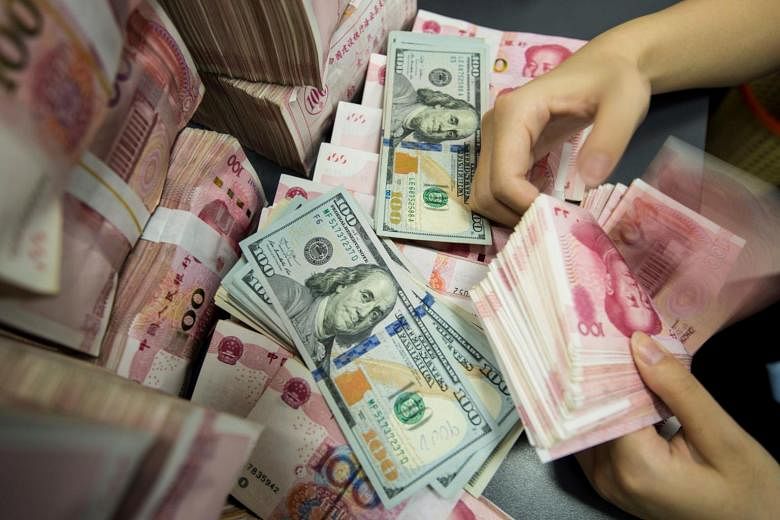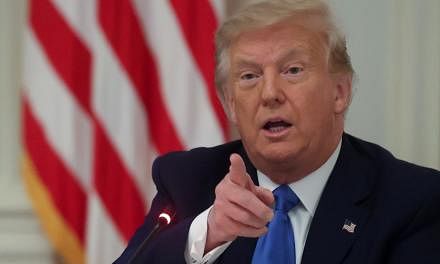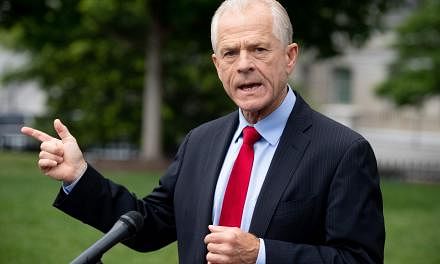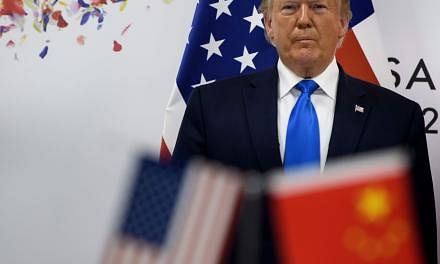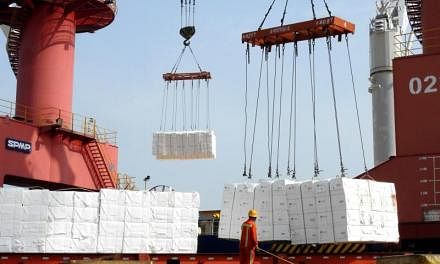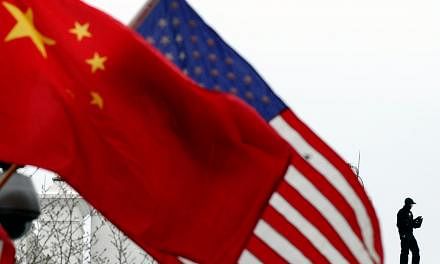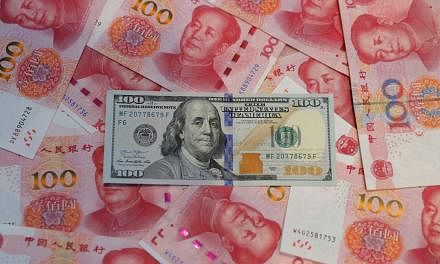SINGAPORE - There could be positive spillover effects for the region from US-China trade tensions, said leaders and experts at the Singapore Institute of International Affairs' 12th Asean and Asia Forum on Thursday (Aug 29).
Malaysia's Deputy Minister for International Trade and Industry Ong Kian Ming, who was a panellist, said that Asean should take advantage of the US-China conflict to deepen regional supply chains and increase inter-Asean trade.
Citing the example of British company Dyson's decision to build its electric car manufacturing plant in Singapore, Dr Ong said: "This is a good example of a win-win situation - while Singapore benefits from R&D investment and engine manufacturing, Malaysia can also manufacture many of the components that go into the electric car."
While US and European companies have a history of working with local players in the region, Dr Ong observed that China has tended to rely on its own companies.
Such differences in approach between the US and China were the subject of heated discussions during an earlier panel discussion on regional implications of the trade war.
The associate dean of Fudan University's Institute of International Studies, Professor Shen Dingli, said that China was unaccustomed to the US "constantly adding new demands".
In May this year, trade talks between Beijing and Washington collapsed after multiple rounds of negotiations. The US accused China of backtracking on its previous commitments, while Beijing accused Washington of making too many demands.
"We want to negotiate with mutual equality and respect," said Prof Shen. "But if the US does not want to make a deal, China's vast domestic consumption will compensate for its inability to export to the US.
"We will also build better infrastructure for a few years to stimulate domestic consumption and investment."
Last week, the US ramped up punitive tariffs for imports from China. The 5 percentage point increases, which will take trade tariffs to 15 percent and 30 percent, are due to roll out in stages through December and target items such as laptops, mobile phones and shoes.
Senior Asia fellow at the Milken Institute and former US ambassador to the Asian Development Bank Curtis Chin countered that the US is simply acting in a manner no different from what others have long accused China of doing.
"(Chinese technology firm) Huawei maintains that it won't turn over anything to the Chinese government just because it says so. But look what happened with Cathay Pacific."
Mr Chin was referring to the resignation of the Hong Kong carrier's CEO Rupert Hogg on Aug 16. It was first announced by CCTV, China's state-run television station, rather than the airline itself.
Contrasting this with the rule of law in Asean, Mr Chin said: "The system of free trade, openness and connectivity is what has allowed this region to thrive."
Asked by the audience if the US stance would outlast the Trump presidency, Prof Shen said it was clear the US wished to redefine free trade. "China has to deal with its own internal pressures. The US should not push it past the point of acceptability or act on the basis of superiority. That's not the way of conducting business in the 21st century."
Mr Chin pointed out that the US' trade position had been evolving since the 1990s, when it built labour and environmental protections into trade agreements on the basis of fair trade.
"Now, it's reciprocal trade - should we treat Chinese companies like how China treats foreign companies, such as through forced technology transfers? We are pushing for a deal that leads to a more sustained and balanced relationship."
